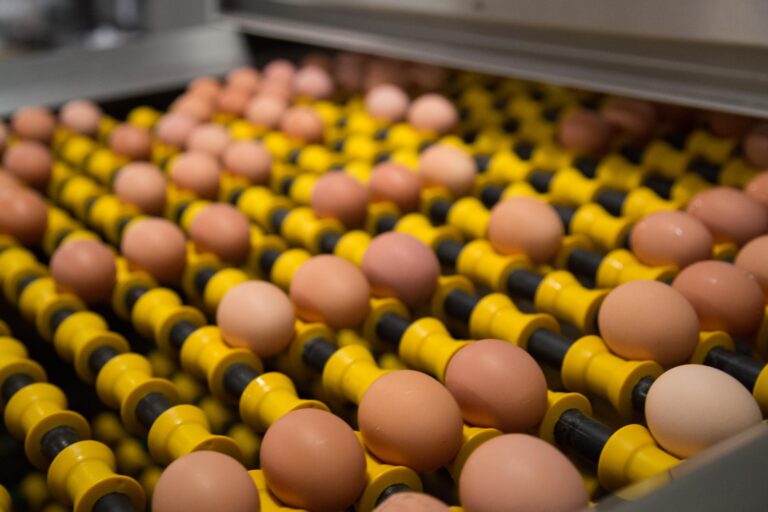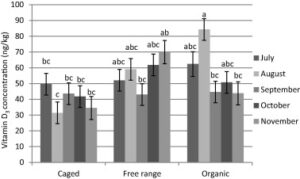Eggs laid to hens that are kept either in free-range or organic systems contain more vitamin D than eggs from hens kept in barns, a new scientific study has found.
Researchers from Centre for Food, Nutrition and Health, University of Reading concluded the exposure to sunlight may be the deciding factor in how much vitamin D was in the different eggs.
Eggs from three farm systems – barn, free-range and organic – were collected from UK supermarkets, over five months. The researchers then tested the eggs for Vitamin D3 and 25-hydroxy D3 concentrations.
“Results demonstrated a higher vitamin D3 concentration in free range (57.2 ± 3.1 μg/kg) and organic (57.2 ± 3.2 μg/kg) compared with indoor (40.2 ± 3.1 μg/kg) (P < 0.001), which was perhaps related to increased vitamin D synthesis by birds having more access to sunlight, while 25-hydroxyvitamin D3 concentration was higher (P < 0.05) only in organic eggs,” the abstract stated.
The two major sources of vitamin D for humans are from eating foods containing it, and through exposure to sunlight. Lack of vitamin D is associated with increased risk of many common and serious diseases, such as cardiovascular disease, osteoporosis, common cancers and diabetes.
The researchers said the study highlights the need for accurate food labelling for vitamin D concentrations, so consumers can make an informed choice about which eggs to buy.
The full research paper will be published in the journal Food Chemistry, in April 2017.



